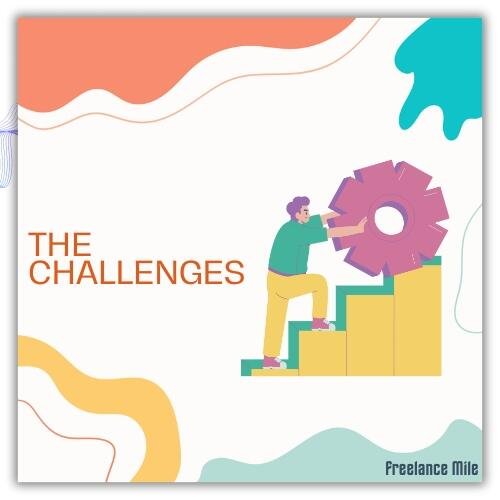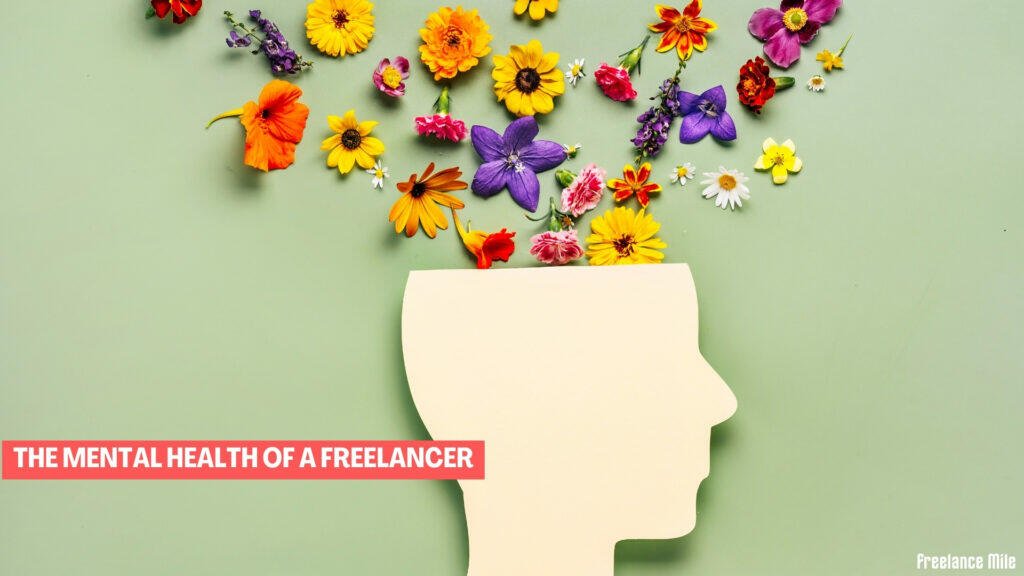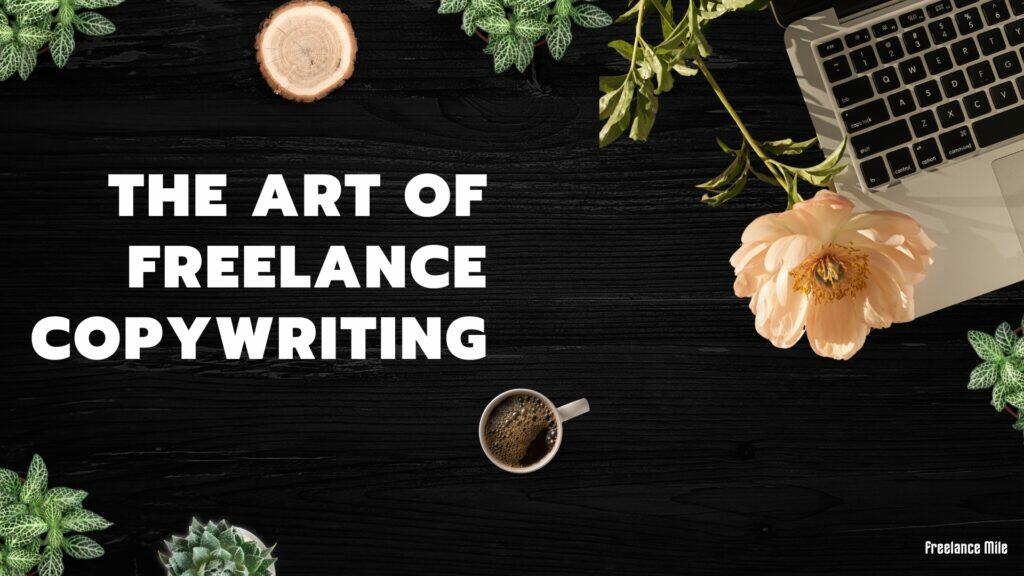Did you know that the mental health of a freelancer can be just as precarious as their income? A surprising 52% of Gen Z workers have already taken the plunge into freelance work, signaling a seismic shift towards the gig economy. But with this massive movement into remote work and self-employment, a wave of mental health issues—ranging from anxiety and depression to burnout and stress—is surfacing.
In my journey as a freelance digital marketer, the balancing act between maintaining mental well-being and a work-life balance while managing client expectations has been a daily challenge. Tackling these hurdles as a self-employed person demands more than just professional expertise; it requires steeled resilience and a toolkit of strategies to champion personal wellness.
Key Takeaways
- Understanding the scale of mental health concerns among freelancers is essential for creating a supportive environment.
- Acknowledging the mental health issue of burnout can help in seeking early intervention and establishing better work-life balance.
- Implementing strategies for mental well-being is fundamental for sustaining a long-term career in freelance work.
- Developing a network and community is crucial for mitigating feelings of anxiety, depression, and isolation that come with remote work.
- Employing expert tips can enhance the resilience of a self-employed person, leading to improved overall happiness and job satisfaction.
The Mental Health Challenges Unique to the Freelancing Lifestyle

Embarking on a career in freelancing can be exhilarating with its flexible working hours and control over the types of projects to engage in. However, it’s not without its mental health challenges. The combination of long hours, the constant search for new work, and the pressure to deliver can lead to a particular mental health problem known within the freelance community as burnout. To maintain our mental health, it’s imperative that we understand and address these issues head-on.
Understanding the Link Between Freelancing and Burnout
As a freelancer, I’ve found that burnout is not just a buzzword but a tangible condition that arises from the relentless pursuit of success in a highly competitive field. Burnout manifests from the mental fatigue accumulated over long periods of intense focus without adequate rest.
Erratic workloads that swing wildly between feast and famine exacerbate the situation, making it one of the key mental health challenges for solo workers like me. Recognizing the early stages—when passion wanes and exhaustion creeps in—is crucial to preventing a downward spiral.
Importance of Acknowledging the Signs of Mental Fatigue
Ignoring the subtler signs of mental fatigue can be easy when there are deadlines to meet and client expectations to manage. Nevertheless, feelings of irritability, chronic tiredness, and a decrease in job satisfaction are signals that warrant attention. As someone who has faced these symptoms, I’ve learned that acknowledging these signs early and adjusting my working hours and habits is fundamental to sustaining a healthy career and lifestyle.
Identifying Social Isolation in a Remote Work Environment
The tranquil solitude of the remote work environment can abruptly evolve into social isolation, another important mental health challenge. The freelance community knows this all too well; the absence of regular, in-person interactions that those in traditional jobs experience can leave us feeling disconnected.
Prolonged isolation not only dampens morale but can also detrimentally impact creativity and productivity. Being proactive in seeking out virtual networking opportunities and participating in community discussions has been essential in mitigating my sense of isolation.
| Issue | Impact on Freelancers | Preventative Measures |
| Burnout | Heightened stress levels, emotional and physical exhaustion | Regular breaks, setting realistic project timelines |
| Mental Fatigue | Decrease in productivity, increased errors in work | Maintaining a well-structured workday, adequate sleep |
| Social Isolation | Feelings of loneliness, potential for depression and anxiety | Engagement with online communities, co-working spaces |
Through my journey, I’ve understood that mental health challenges like burnout, mental fatigue, and social isolation are significant concerns in freelancing. Addressing these issues proactively by setting healthy working hours, staying connected within the freelance community, and taking regular, purposeful breaks can form the bedrock of a successful and sustainable freelance career.
Building Resilience: Mental Health Protection for Freelancers
As a freelancer, my journey is often a solo one, yet my mental health is an ever-present companion that requires nurturing and protection. Faced with the volatility of freelance jobs, I’ve come to embrace resilience as my shield, allowing me to bounce back from setbacks and maintain my mental wellbeing. Nurturing resilience involves not only recognizing the symptoms of mental strain but also understanding the importance of setting healthy boundaries between my professional demands and personal life.
Recognizing the need for professional help is akin to deploying a life raft in a storm—it’s a sign of strength, not weakness.
Below, I’ve outlined strategies that help build the resilience necessary to withstand the fluctuating pressures of freelancing:
- Develop self-awareness to spot early signs of mental illness or distress.
- Adopt a proactive mindset to counter negative thoughts and prevent overwhelm.
- Implement relaxation techniques like mindfulness or controlled breathing to mitigate stress.
- Create a support network of peers to share concerns and seek guidance.
- Set clear working hours to establish healthy boundaries with clients and myself.
- Embrace the ebbs and flows of freelancing by celebrating small victories and learning from challenges.
These strategies are visualized in the table below, which illustrates how each contributes to the overall framework of resilience:
| Strategy | Resilience Aspect | Benefits |
| Self-Awareness | Awareness | Early detection of mental strain and proactive management. |
| Proactive Mindset | Prevention | Reduces the impact of negative thoughts and stressors. |
| Relaxation Techniques | Recovery | Aids in stress relief and mental recovery. |
| Support Network | Community | Provides emotional support and guidance. |
| Defined Working Hours | Boundaries | Promotes work-life balance and reduces burnout. |
| Embrace Flexibility | Adaptability | Encourages growth and learning from the freelance experience. |
Cultivating resilience is a continuous process, one that keeps me afloat in an ocean of freelance uncertainty. By integrating these practices into my routine, I’m not just surviving as a freelancer; I’m setting the stage for flourishing mental health and a satisfying work-life harmony.
Fostering Connections: How Community Can Bolster Freelancer Wellbeing
In the ever-evolving world of freelancing, I’ve discovered the profound impact that forging strong connections can have on my mental wellbeing. While the path of a freelance worker is often walked alone, it doesn’t have to be a solitary experience. Building relationships within the freelance community provides not only a safeguard against professional isolation but also reinforces a support structure crucial for my mental health.
The Power of Peer Support Among Freelancers
There’s nothing quite like the camaraderie of fellow freelancers. Those who’ve walked in similar shoes understand the unique challenges we face. Engaging with others in the freelance community, whether they’re writers, designers, or consultants for small businesses, has given me invaluable peer support. From a casual venting session to discussing complicated project quotes, the shared knowledge and empathy from peers is a treasure trove of support.
Effective Networking to Reduce Professional Isolation
Networking goes beyond exchanging business cards or social media follows; it’s about creating meaningful relationships that enrich both my professional and personal life. As a freelancer, attending networking events or joining co-working spaces has allowed me to form bonds with like-minded individuals, easing feelings of isolation and reaffirming my place within the freelancing landscape.
Leveraging Online Groups for Mental Wellness
The digital age has been a boon for freelancers like me, seeking to connect without geographical barriers. Online groups have become a pivotal resource for mental wellness. These virtual spaces allow me to tap into the collective wisdom of the freelance community, receive guidance from mental health professionals, and access resources from mental health foundations when needed.
| Connection Type | Benefits | Tools/Resources |
| Peer Support | Moral and emotional support, shared experiences | Local meetups, industry forums, social media groups |
| Networking Events | Professional growth, new opportunities, sense of belonging | Industry conferences, co-working space events, business workshops |
| Online Groups | 24/7 accessibility, broad range of perspectives, anonymity for sensitive issues | LinkedIn groups, Facebook communities, specialized forums |
Practical Tips for Sustaining Good Mental Health as a Freelancer
Embarking on a freelance career can be incredibly rewarding, yet challenging when it comes to maintaining not only work-life balance but also my mental and physical health. Over time, I’ve gathered some life-tested mental health tips that have significantly contributed to an improved mental health status.
Let’s delve into actionable steps that I’ve found helpful in managing stress levels and addressing mental health concerns while juggling my professional endeavors.
- Set and Communicate Client Boundaries: By being clear about my availability and the scope of work, I create a protective perimeter that wards off excessive demands and after-hours requests.
- Take Regular Breaks: I ensure that short respites are a part of my day, using techniques like the Pomodoro Technique to break work into intervals, promoting sustained concentration and alertness.
- Embrace Physical Activity: Incorporating exercises, whether it’s a brisk walk or a yoga session, has been indispensable for my physical health and mental sharpness.
- Outsource When Necessary: During peak times, I’ve learned the value of outsourcing work to trusted colleagues, allowing me to maintain quality without overloading myself.
- Pursue Creative Outlets: Engaging in hobbies and passions outside my client work fuels my creativity and prevents emotional burnout.
- Build a Support System: From family to freelancing forums, maintaining a network of support has been vital in navigating the solitary waters of self-employment.
To encapsulate, while the journey as a freelancer presents its unique set of challenges, taking strides in managing my wellbeing has been paramount. The above strategies have not only helped curtain my stress levels but also paved the way for a healthier and more joyful freelance voyage. Remember, prioritizing our health is not an indulgence, it’s a necessity, and the cornerstone for success in any career.
Conclusion
In navigating the realm of freelance work, maintaining my mental health has emerged as a paramount task. The journey has taught me that fostering a work-life balance transcends mere time management—it’s about crafting an environment where mental wellbeing can flourish alongside professional success. It’s a careful dance between passion for my work and the necessity for self-care, with each step aimed towards sustainability in my freelance career.
Cultivating a Healthy Work-Life Balance is Essential
Acquiring a harmonious work-life balance is no longer a hypothetical ideal but a crucial, attainable goal. By setting boundaries, embracing regular breaks, and engaging in activities that replenish my energy, I mitigate the risks of anxiety, stress, and depression. Acknowledging the importance of balance helps me to focus not just on being a productive freelancer, but also on remaining a healthy individual.
When to Seek Professional Help
Despite all the strategies and community support, recognizing when to pursue professional help for mental health problems is vital. There is profound strength in accepting that sometimes, the weight of freelancing can be too heavy to shoulder alone. As part of my commitment to staying resilient, I remain vigilant to the signs that suggest I might need to reach out for aid from mental health professionals.
Continuing the Conversation on Freelancer Mental Health
Finally, I understand the transformative power of continuing the conversation about mental health in the freelancing world. With increased mental health awareness, we collectively build a more robust mental health foundation, providing freelancer support that can traverse the hurdles of isolation and uncertainty. My narrative is just one of many, and it’s through shared experiences that we can truly fortify the community and ensure that none of us feel solitary in our journey.




